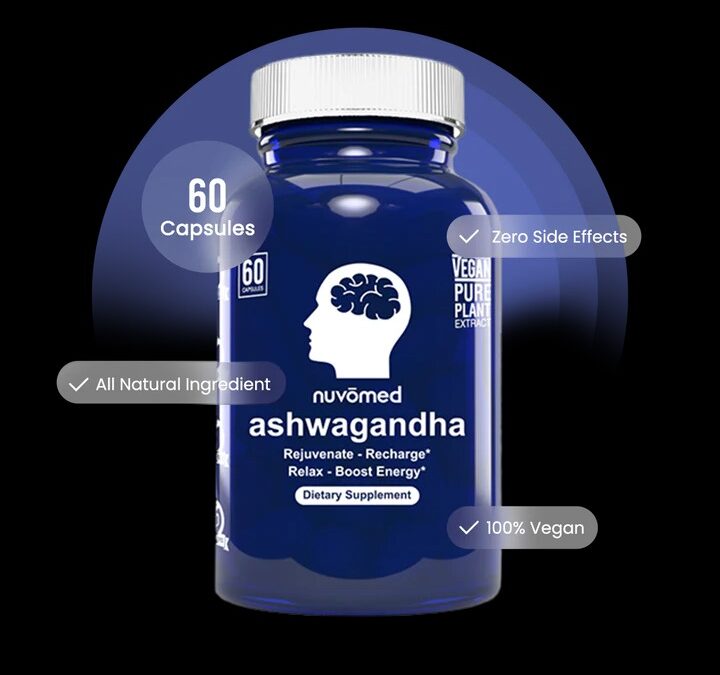Ashwagandha, also known as Withania somnifera, is an herb that has been used in traditional Ayurvedic medicine for centuries. It has gained popularity in the Western world in recent years due to its alleged benefits for improving mental health. But do these statements have any supporting scientific data? In this article, we will explore the potential benefits and risks of ashwagandha for mental health.
Ashwagandha is an adaptogenic herb, which means that it can help the body adapt to stressors. It is believed to work by reducing levels of cortisol, the stress hormone, and increasing levels of serotonin, the “feel-good” neurotransmitter. These effects have led to suggestions that ashwagandha could be beneficial for people with mental health conditions, such as anxiety and depression.
Ashwagandha and Mental Health: What the Latest Research Is Revealing
Ashwagandha appears to have potential benefits for mental health, particularly in reducing symptoms of anxiety and depression and improving cognitive function and sleep quality. However, more research is needed to determine the full extent of these benefits and any potential risks. As with any supplement, it is important to use caution and consult with a healthcare provider before taking ashwagandha.
One study published in the Journal of Alternative and Complementary Medicine found that ashwagandha reduced symptoms of anxiety in people with generalized anxiety disorder. Participants who took 300 mg of ashwagandha root extract twice daily for eight weeks had significantly lower levels of anxiety than those who took a placebo.
In addition to its potential benefits for anxiety and depression, ashwagandha may also be beneficial for cognitive function. A study published in the Journal of Dietary Supplements found that ashwagandha improved reaction time, attention, and overall cognitive function in healthy adults.
Ashwagandha may also have benefits for sleep. A study published in the Journal of Ayurveda and Integrative Medicine found that ashwagandha root extract improved sleep quality in people with insomnia. Participants who took 300 mg of Ashwagandha extract twice daily for 10 weeks had significantly better sleep quality than those who didn’t.
While ashwagandha appears to have potential benefits for mental health, it is important to note that more research is needed. Many of the studies that have been conducted so far have been small and for a short duration. Therefore, long-term studies are needed to determine the full extent of ashwagandha’s potential benefits and any potential risks.
Is Ashwagandha Safe for Everyone? A Thorough Look at Potential Adverse Effects
Despite being usually regarded as harmless, ashwagandha can interact with many medications. It may also cause side effects, such as upset stomach, diarrhea, and nausea, especially at high doses. People with autoimmune diseases, such as lupus and rheumatoid arthritis, should also use caution when taking ashwagandha, as it may stimulate the immune system and make these conditions worse.
It is also important to note that ashwagandha supplements should not be used as a substitute for prescribed medication. People with mental health conditions should always consult with a healthcare provider before taking any new supplement or making any changes to their medication regimen.
Let’s find out how Nuvomeds Ashwagandha will be beneficial
Nuvomed’s Ashwagandha supplement is designed to support healthy sleep and enhance energy levels. It is completely free of artificial sweeteners, lactose, parabens, and gluten. Moreover, it contains extracts from the Ashwagandha root, which have been shown to reduce stress and anxiety levels while defending cells against oxidative damage caused by stress. Additionally, it has qualities that lower cortisol levels, promoting a more straightforward thinking process in unfamiliar settings.
Studies have also demonstrated that Ashwagandha can control high blood sugar levels and improve cognitive functioning in the brain. Ashwagandha is a versatile supplement that can be easily incorporated into daily routines, as it comes in various forms such as capsules, powders, and teas. Nuvomed’s best Ashwagandha supplement is available in pill form for convenient consumption. However, it’s important to note that Ashwagandha and some other drugs may interfere with each other. Therefore, it’s advisable to consult with a doctor before deciding to use any supplements.
Conclusion
We hope that you now have an all-around understanding of how Ashwagandha can positively impact an individual’s mental health. Studies have shown that Ashwagandha can alleviate stress and anxiety, strengthen the immune system, improve cognitive function, regulate blood sugar levels, and reduce inflammation.
Consider incorporating Nuvomed’s Ashwagandha supplements into your routine, as they offer various health benefits without any sweeteners, lactose, parabens, or gluten. This makes it the best ashwagandha supplement for anyone seeking to improve their health and well-being. By using Nuvomed’s Ashwagandha regularly, you may experience numerous health benefits.


